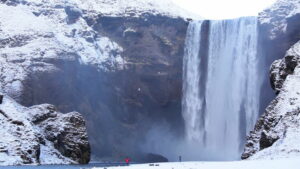
Winter is the time of the Water Element. During this season of stillness, we quiet our innermost being. We incubate our dreams and tune-in to the potential energy that will hatch them in the Spring.
The Water Element represents the capacity to direct our will and the ability to flow through life with ease and grace. This Element’s prime time is winter. Water is a great healer. All over the world, people visit special springs famous for their healing properties.
In Asian Medicine, this is the season when rest is especially important. Two types are significant:
- Recuperative sleep that restores your metabolic functions
- Stillness of mind that takes you inward and restores your soul for dreaming the dream your spirit yearns to realize. This essential type of rest renews your very essence and revitalizes consciousness, vigor and health.
Physical and Mental Expressions of the Water Element
In Asian Medicine, the organs associated with the Water Element are the Urinary Bladder and the Kidneys, including the adrenal glands that sit on top of the kidneys. Water rules the nervous system, bones, teeth and head hair. It corresponds to the color black (the depths of the sea) and the salty taste. Its main functions are to:
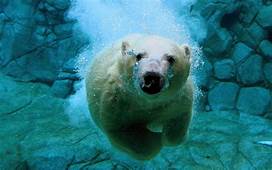
- Supply vital energy to activate metabolism
- Cleanse and purify the body’s liquids
- Regulate the cycles of maturing from birth to old age
Basically, it is the energy that motivates us to grow and reproduce. The Water Element expresses itself physically through the nervous system and hormonal system.
Its mental expression is will power and ambition (not as in greed, but rather the desire to achieve something).
The Water-Type Person
The Asian medical classics say the Kidneys function like strong and capable ministers of government who exhibit technical ability and expertise. The Bladder’s purview is likened to that of a local minister who works to adjust the supply and demand of water in outlying areas. They work together like supervisors over all the various organs and functions.
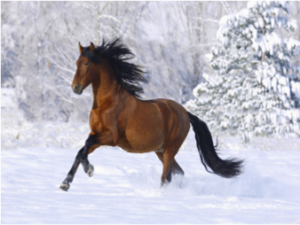
When in balance, Water people are calm and even. They enjoy physical activity, are well coordinated and possess the necessary energy and strength to persevere in their endeavors. Water-type people may be tired at the end of the day from working hard, but they will fall deeply asleep, waking up refreshed and restored.
When out of balance, Water people tend to overwork, but they may lack the perseverance required to finish what they start. They may startle easily or be anxious due to excessive nervous energy or fearfulness. They will over-react to things.
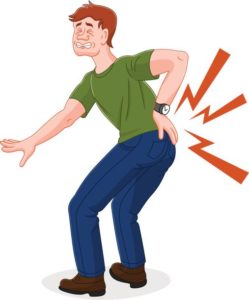
On the physical level, one of the most common symptoms of a Water imbalance is a weak low back with pain and/or stiffness. Headache may occur at the forehead, or as a throbbing at the back of the head (occiput). Sometimes there is a sensation of chilling in the lower abdomen down to the legs. Infertility (male or female) is another possibility.
People with the “Water personality” are persistent, sometimes even to the point of recklessness. They are able to hide their fear. Water people have good memories and are smart and resourceful. They enjoy travel. Water people can be either “still” or “floating,” which means calm or restless. Negative qualities associated with Water are trickiness, indecisiveness and being self-centered and plotting.
Recommendations for the Season of the Water Element
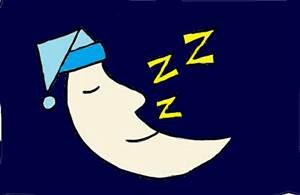
Winter is the perfect time to read, paint, write or journal, plan your garden, etc. Any quiet creative endeavor fosters a healthy Water Element. According to Asian Medicine, in winter it is best to conserve your energy by staying warm, keeping a harmonious balance between activity and rest, and getting good nutrition.

In Japan, it is common in winter to wear a “haramaki” (a scarf around your mid-section to keep your belly and low back warm) in addition to the scarf around your neck. You can also try rubbing your kidneys vigorously before going out into the cold, and again when you come in. Exercise that emphasizes low back health is excellent.

Shiatsu is widely used as a customary treatment for low back complaints, and it is great for helping you get in touch with that quiet peaceful place at the core of your being. Yoga, qigong and Alexander Technique are good too.
Dietary Recommendations
Eating a diet of mostly carbohydrates and proteins is best for maintaining body heat. Hearty soups and casseroles with lots of root vegetables are wonderful. Beans shaped like kidneys (e.g. red beans, black beans and pinto beans) are especially recommended, but lentils and split peas are also excellent. If you use whole grains, barley and buckwheat make splendid additions that support the Water Element.
Drink lots of water and avoid too many dehydrating and stimulant drinks. Also, cold drinks (especially cold beer or soft drinks with ice) are especially harmful.
In Conclusion
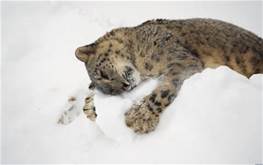
So, stay cozy, rest well, eat warming foods, incubate your dreams, and cultivate the deep nature of your true self. Remember, snow and ice are just water in other forms. So stay fluid. Adapt your will to resting powerfully. Even though you are slowing down, your freedom of movement flows in the dreams you dream for your future. Soon, a blanket of snow will put a hush in the air. In the deep silence, you can hear your own beauty.